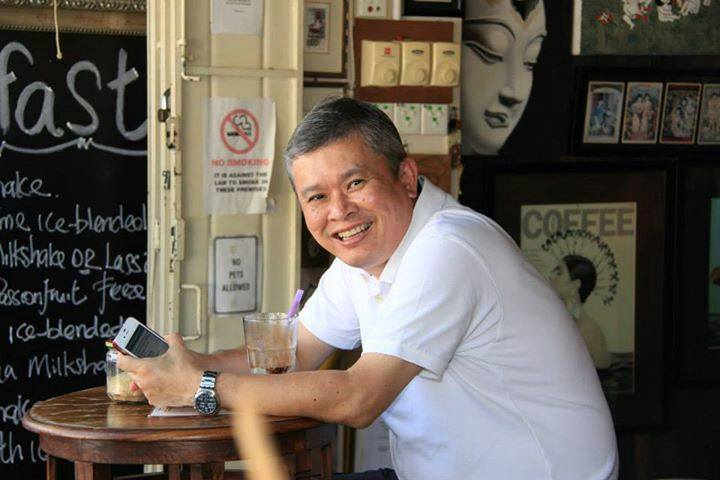Ang Mo Kio GRC Member of Parliament (MP) and National Taxi Association (NTA) adviser Ang Hin Kee caused quite the brouhaha when The Sunday Times published his comments in an article titled "Fare cuts by Uber, Grab will hurt sector: Taxi body".
Three things that were highlighted in the paper and rubbed some people the wrong way include:
1. Uber and Grab lowering prices would force both private-hire car drivers and cabbies to do more trips and drive longer to earn essentially the same amount. (But passengers love lower prices!)
2. Both app companies still draw 20 per cent of fares from drivers despite lowering prices. (Drivers lose out!)
3. In the event both companies dominate the market, they may raise prices and charge a premium; and there are currently no checks and balances to ensure drivers and consumers are not taken advantage of. (But haven't certain taxi companies dominated the local market for decades?)
The firestorm against Ang's comments raged on after ST published a forum letter on Tuesday (Apr 26) stating that the problem faced by taxi companies and drivers were self-created.
Many people missed one of Ang's important points
Amidst all the fire and brimstone, one pertinent point raised by Ang seemed to have flown past everybody's head.
Taxi companies are subjected to regulations by the authorities and there are costs involved in the compliance with regulations. Private-hire app companies are not hampered by such compliance costs.
One must also understand that Ang's role as adviser to NTA (the union for taxi drivers) is to help taxi drivers, not taxi companies. Regulatory costs on taxi companies may or may not be passed onto drivers.
Ang's point was that either impose similar standards on these companies, or remove it from taxi companies. In fact, he already said this in an interview with Mothership.sg in Nov 2015.
Most start-ups face regulatory hurdles which seem to favour incumbents, but in this scenario, regulation is giving Uber and Grab quite the head start. Ang previously used a hawker analogy to illustrate the point:
"There’s a very rigorous way of checking hygiene level for hawkers. But if a push cart appears at the hawker centre with no licence. It can be cheaper because there’s no compliance cost and no rental. Say the push cart’s food is cheaper and better and it only comes during peak hour. Then why would the hawkers want to follow these rules? There’s a reason for the rules and they were told that rules are important. So if the rules are not relevant anymore or if there’s a new set of rules, then make them applicable to all."
In fact, his earlier comments about "levelling the playing field" might have pushed for the implementation of vocational licences and security checks for private-hire car drivers next year, which in all honesty, is great for consumers (We all know the horror Uber stories from overseas).
Most importantly, the proverbial playing field was indeed levelled as the government also announced a loosening of regulations for taxi drivers.
Onerous obstacles like the taxi drivers vocational licence (TDVL) system will be shortened to 25 hours instead of 60 hours and taxi drivers and the era of memorising the street directory is effectively over as drivers will know learn how to use GPS.
Existing regulations should be relooked with the advent of new technology
One of the bugbears taxi drivers have are the regulations that Ang highlighted - the need for 70 to 80 per cent of the taxi fleet to ply the roads during peak hours and for taxis to travel at least 250km a day.
This leads to a lot of wastage in terms of petrol and time especially if taxis are plying the road hunting for non-existent fares to meet the 250km quota. The regulation was put in place after commuters complained that there were not enough taxis especially during peak hours.
Supply just wasn't meeting demand.
Perhaps with Grab and Uber's introduction to the market, the apps have actually demonstrated alternative ways to solving this problem.
Take for example Uber's surge pricing, it shows some commuters' willingness to pay extra to ensure a ride.
The higher fares that come with surge gives private-hire car drivers the added incentive to drive during peak hours. Add to that the fact that Uber matches commuters with drivers via an app - no need for the driver to be plying the roads needlessly for 250km hunting for a fare.
Perhaps it is time for LTA to re-look some of its regulatory requirements of taxi companies, but at the same time, put in place measures to ensure that surge pricing does not go out of hand.
The future of the taxi union and private-hire drivers
Ang mentioned that should app companies like Uber and Grab gain dominance, there may not be a check and balance to ensure passengers and drivers are not taken advantage of.
For instance, app companies may offer unfair terms to drivers who may not have the clout to bargain collectively.
This actually represents an opportunity for private-hire drivers to unionise.
A good example is how the unions tackled the entry of new players in the bus industry.
The National Transport Workers Union (NTWU) worked with new bus operator Tower Transit to develop new employment terms for drivers that were even more generous than what was offered by SMRT and SBS Transit.
NTA aims to look after the interest of taxi-drivers and it may want to explore welcoming private-hire drivers into their fold.
Strength in numbers help against dominating employers, no?
If you like what you read, follow us on Facebook and Twitter to get the latest updates.
If you like what you read, follow us on Facebook, Instagram, Twitter and Telegram to get the latest updates.
